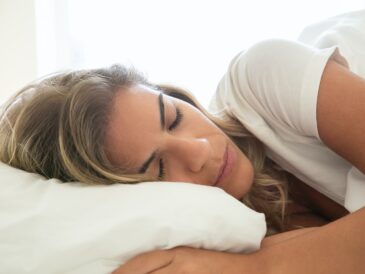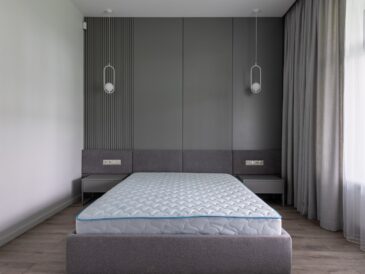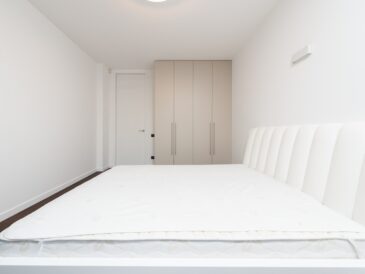Pillows may not be necessary for everyone, but they can make sleeping better and preventing neck or back pain easier. A pillow that disturbs an individual’s natural alignment could potentially cause pain as well as posture issues.
Pillows can help alleviate medical conditions like heartburn or obstructive sleep apnea; sleeping without one may pose health risks, however.
Support
Pillows provide essential support to the neck and spine when sleeping, which in turn reduces aches and pains while improving posture. Sleeping without one, on the other hand, may cause your neck to overextend and out of alignment which could cause pain to arise in your neck, shoulders and back if you prefer side or back sleeping positions.
Pillows can play an invaluable role in aiding circulation – an integral component of restful slumber. Sleeping on one can raise the head, alleviating pressure on blood vessels and encouraging better blood flow – this can especially aid those suffering from varicose veins or edema as it reduces swelling in limbs.
When transitioning to sleeping without pillows, it’s advisable to start slowly and gradually reduce their height until you can drift off without needing them. Begin by placing a thin pillow or blanket under your head; over time gradually decrease it until you can sleep without one. A supportive mattress tailored specifically for your sleep position and body size is also key – too soft mattress may cause your spine to sag, leading to backache; for stomach sleepers considering getting a body pillow that lifts hips for neutral spine alignment may help ease transitioning.
Circulation
Pillows aren’t just decorative additions to your bed; they play an essential role in maintaining proper spine alignment and supporting the natural curvature of your neck. Achieving this balance can prevent health problems like snoring, breathing difficulties and neck pain from cropping up – an integral component of having healthy posture.
Stomach sleepers may be the only people who can manage without pillows, though this is not advised for other individuals. Sleeping on your stomach puts your body into an unnatural position that strains muscles and joints throughout its entirety; without one, your head could remain overextended all night long, leading to stiffness and pain throughout the day.
Side sleepers also require a pillow to ensure their neck remains in a comfortable and natural position, without restricting breathing or movement during sleep. Experimentation is key here – experiment with various pillows and positions until you find what best meets your body and sleeping needs; consult a physician regarding any difficulties, and explore various techniques such as those offered by Leesa to achieve restful nights of restful slumber.
Sleeping Positions
Though few give much consideration to the ergonomics of their sleep, a good night’s rest should leave you feeling rested and refreshed. Therefore, it’s essential that we pay attention to factors like sleeping position and bed comfort level when planning our restful slumber sessions.
Sleep positions typically include sleeping curled into a fetal position, sleeping on your back, or side sleeping. Each has their own advantages and disadvantages; back sleeping is widely regarded as being most healthy since it reduces back pain while helping prevent neck strain. If difficulty sleeping on one’s back is an issue for them, placing a pillow under their knees may help alleviate pressure off their spine.
For those who prefer sleeping on their side, a medium-height pillow is best at supporting natural alignment of neck and spine. It may also work to reduce symptoms associated with snoring and sleep apnea. Stomach sleepers, on the other hand, may experience less comfort as stomach sleeping increases back and neck strain which in turn exacerbates symptoms associated with snoring and sleep apnea.
Switch sides regularly when sleeping to prevent imbalances from developing that could result in bone, muscle and nerve injuries. Furthermore, experiment with various pillows and sleep positions until you find one that provides adequate support and comfort.
Health Risks
Certain spinal conditions could be negatively affected by sleeping without a pillow, such as those suffering from scoliosis or another spine disorder, by sleeping without one. People suffering from these issues could experience neck or back pain if they opt to do without one; before making such drastic changes it’s wise to consult your physician first.
Avoiding pillows may help stomach sleepers by forcing the head into a lower position and aligning their spine during sleep, however some stomach sleepers may still find their necks are in an unnatural position despite not using one.
Pillows can also cause issues for those with dust or bacteria allergies, exacerbated by sleeping with dirty or moldy pillows that exacerbate these allergens and result in breathing difficulty or other symptoms during the night. Furthermore, pillows can become filthy over time from being shared between multiple sleepers or pets that share beds – this dirt clogging pores of skin leading to irritation or reddening areas of skin clogs resulting in sleeping discomfort for both of you!
Answering this question boils down to individual preference and sleeping needs. Back and side sleepers usually require pillows in order to avoid placing strain on the neck and spine. If you are suffering from neck or back pain, however, trying sleeping with less-comfortable pillows might help find one that is most suitable.




